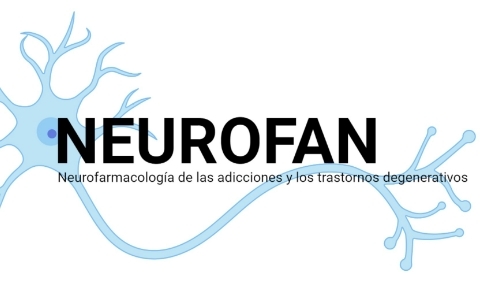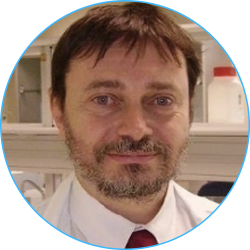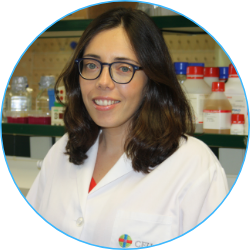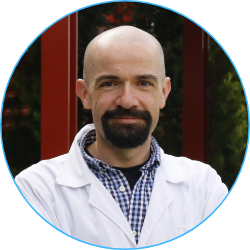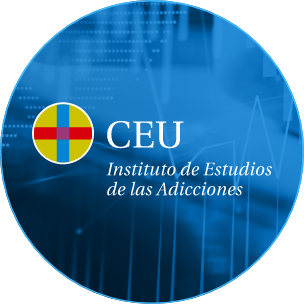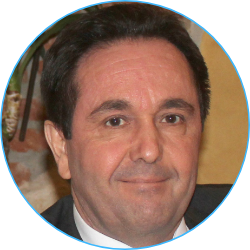LINES OF RESEARCH
Research fields
Neurobiology of alcoholism
Chronic alcohol consumption produces adaptive changes at the level of different neurotransmitters and brain circuits, which can lead to behavioural and psychological alterations. At the IEA-CEU we use animal models of alcohol consumption and addiction to study in depth the brain mechanisms involved.
. As the developing brain is even more vulnerable to the effects of alcohol, we also carry out specific studies to understand the long-term consequences of alcohol abuse in adolescence. Furthermore, in order to shed light on possible differences in alcohol use disorders between males and females, we study alcohol-induced behavioural, structural and functional brain changes in both sexes.
Preclinical drug development for alcoholism treatment
The treatment of alcohol use disorders is based on a combination of behavioural therapy and pharmacological treatment. Medications currently in use may help some patients to reduce alcohol consumption or improve withdrawal symptoms. However, not all patients adequately respond to these drugs. At the IEA-CEU we are working to find new therapeutic targets involved in alcoholism.
Using rational drug design based on computational models, we conduct alternative trials to assess the efficacy, toxicity and pharmacokinetics of different molecules. The most promising compounds in these assays are tested in animal models of alcohol consumption and addiction as potential candidates for the development of drugs for the treatment of alcoholism.
Alcohol and other drug induced neurotoxicity: Contribution of the immune response
Drugs of abuse cause neurotoxicity, affecting different brain pathways and neurotransmitter systems. Given the link between drug-induced neurotoxicity and the development of neurodegenerative diseases, an in-depth understanding of the mechanisms that trigger neurotoxicity may further contribute to the search for therapeutic strategies for both prevention and treatment of these central disorders. One of the brain processes closely related to neurotoxicity is neuroinflammation.
Researchers at the IEA-CEU are working on the identification and characterisation of new key factors in the modulation of neuroinflammatory processes, which is considered fundamental for the development of new drugs designed to prevent the neurotoxic effects of drugs.
Biological markers of addiction vulnerability
The risk of addiction and the severity of addiction once it is established are highly heterogeneous in the population. This differential vulnerability is largely determined by biological factors, which is why the availability of associated biomarkers can be very useful to support and personalize the prevention and treatment of addictions.
Accordingly, we apply different technologies to the identification of new biomarkers as well as to validate those candidates previously identified in human clinical practice and/ or also in experimental laboratory models.
Addictive properties of food
Many authors have shown that certain components of the diet may have intrinsic addictive properties, or may modulate the abuse potential of other substances. Consequently, research into the biological mechanisms involved may be of interest for the understanding and treatment of addiction.
One of the specific interests of IEA-CEU researchers in this field is related to the effects of fructose intake, as it seems to provoke sugar aversion and reduce alcohol consumption through an increase in plasma levels of FGF21. Moreover, this increase is particularly marked in the offspring of mothers who consume fructose during gestation, which could have an impact on the addiction vulnerability of the former.
The IEA-CEU is also studying the effects of fatty diets on the brain's reinforcement and reward system in animal models.
Use/abuse of new technologies. Prevention and treatment from an integral perspective
This area of work focuses on the detection of possible conflicts arising from the use of new technologies both at home and at school. Among other parameters, the aim is to find out whether there is a perception of risk in the use-abuse of new technologies, as well as the skills applied in the face of conflicts.
With this, we seek to detect the training needs of parents and educators in order to formalise these resources and provide a service to society to alleviate these situations of conflict and promote the proper use of new technologies. Our approach will be comprehensive, including not only the psychological vision but also the Christian humanist, anthropological and medical ones.
Values and strengths and their relationship with the use/abuse of social networks
This project aims to deepen our knowledge of how the use of social networks affects the organisation of our values, principles, priorities and quality of life, including a study of the addictive potential of their abuse. Consequently, proposals for intervention at three levels are envisaged. From the primary level, through the development of prevention plans and the provision of useful psychoeducation on the potential risks inherent in the use of social networks.
From the secondary level, with the detection of symptoms and signs of lack of regulation of consumption and warning signs that may be useful for both the user and those close to them (teachers, friends, family) to consider the option of seeking help. And, finally, from the third level, making available the different treatment, support and help channels once consumption has already wreaked havoc in the user's life situation.
Interdisciplinary research into addictions
The problem of addictions is multidimensional (biological, psychological, social, anthropological, etc.). For this reason, its therapeutic approach has been multidisciplinary and addiction research should also be multidisciplinary, so that researchers can share their results and find correlations to clarify the causes and develop better models of understanding and treatment. In this respect, we particularly value the knowledge that the human sciences can bring by analysing addictions from a person perspective.
Anthropology and the philosophy of addictions, for example, can be a unifying nexus of a necessarily interdisciplinary research approach: we thus develop a perspectivist methodology suitable for issues that involve great complexity. This research also seeks to work on the humanisation of the treatment of addictions, whether they are substance or non-substance addictions.
Addiction prevention and intervention programmes in the school environment
Addiction prevention and intervention programmes in the school environment It is increasingly frequent and at younger ages (around 12 or 13 years old), when the first experimentations with easily accessible drugs take place among our adolescents. So much so that today's society must develop and offer effective intervention responses to our young people. The most appropriate response is undoubtedly prevention.
At the IAE we understand that prevention means educating, guiding, facilitating and promoting the integral development of the person, encouraging the discovery, acquisition and development of skills to detect, confront and resolve situations that put their health at risk. In this sense, the prevention of the consumption of addictive substances is the set of actions aimed at modifying and, where appropriate, eliminating risk factors and promoting protective factors, not only for drug consumption, but also for other addictive behaviours.
Undoubtedly, the modelling of consumption behaviour by the family and information and training in the educational sphere are pillars of significant relevance for the prevention of consumption.
PEOPLE
GRUPOS DE INVESTIGACIÓN
